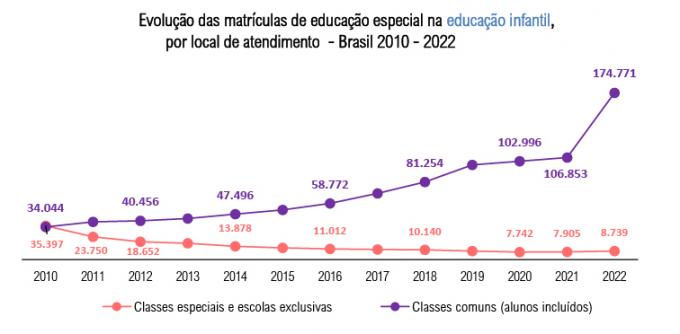The vertiginous increase in the number of enrollments in special education in common classes, which reached 63%, in the passage from 2021 to 2022, attests to the advancement of inclusion in Brazilian society, a trend that has been accentuated since 2010, as prejudice gives way to awareness of equal fundamental rights, among all.
see more
End of individual banking apps: Central Bank plans to…
Scientists Discover Dinosaur Embryo Preserved Inside Egg
But for such an evolutionary escalation to be consolidated and maintained, it is fundamental that what determines in Law nº 13.005 materialize, through the National Education Plan (PNE), which ensures the diversity of human beings complete training, free of prejudice and which recognizes the differences.
But what would be the 'touchstone' that would ensure compliance with such a basic principle of citizenship? The answer is simple, but its application is more complex: the learning of students with disabilities is the responsibility of all those who are part of the educational process and not just the teacher.
However, it should be noted that teachers, in particular, need to rely on a support network, made up of people who participate directly in the student's teaching and learning process, such as the family and professionals in the field of health.
In addition to this support, it is up to schools to provide training and continuing education to educators, requirements considered essential by specialists to that teaching professionals are able to deal with these students, through adaptations and installation of equipment necessary for successful learning.
Despite the fairness of this orientation, currently, undergraduate courses do not include disciplines that enable masters to deal with the peculiarities and differences of each student. As a resource for overcoming this gap in teacher training, the recommendation is the use of the National Common Curricular Base (BNCC) in the work of guiding schools. At the same time, the BNCC must be 'flexible', in order to provide both specific material and furniture, as well as equipment, such as computers and related programs.
As reinforcement, it is up to the school to promote joint work with the Specialized Educational Service (AEE) and the State, which would adapt the building structure, which includes multifunctional and inclusive rooms and environments, such as bathrooms, sinks and toilets compatible with needs specials.

